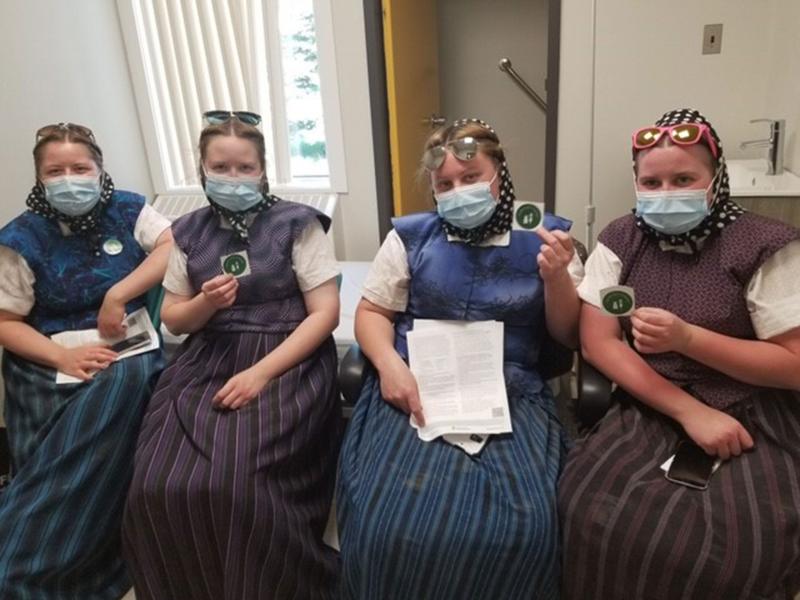Hutterite communities stick it to COVID
Using a collaborative approach to getting COVID-19 vaccines in the arms of as many Saskatchewan residents as possible has been an ongoing focus of the Saskatchewan Health Authority (SHA), to help prevent the spread of the virus, along with the illness it causes, hospitalizations, and deaths from it.
An example of the collaboration between the SHA and community can be seen in rural Saskatchewan, in the SHA’s work with Hutterite colonies. Collaboration with the Hutterian Safety Council (HSC) and colony leaders has been key throughout the pandemic, including for the rollout of the COVID-19 vaccine. However, interfacing successfully within a highly-dynamic environment that is layered with cultural sensitivities is never without challenges.
Recognizing that communal living, which is how Hutterite communities work, can promote the transmission of COVID-19 more rapidly, health professionals from the SHA, including family physicians, medical health officers, public health, and many other health staff visited these communities to engage and educate about COVID-19; how it spreads, how to stop it, and how the vaccine works.
“Some of the Hutterite communities in our province had challenges in accessing and understanding information about COVID, and therefore many were hesitant about the vaccine and had many questions,” explained Dr. David Torr, Medical Health Officer for rural Saskatchewan.
For many communities in rural Saskatchewan, spring and summer are busy times for farming and ranching operations. Taking any time away from that work to go get a COVID-19 immunization or test can be challenging.
So in early spring, as the vaccine rollout was hitting its stride in Saskatchewan and Hutterite farming communities were preparing for one of their busiest seasons, the Integrated Rural Health sector of the SHA engaged with Hutterite community members and organizations like the Hutterian Safety Council (HSC). They strategized on how best to enhance protection of the public, address ways to further minimize spread of COVID-19, address questions that many community members had, and encourage immunization.
One initiative was a virtual meeting in May arranged by the SHA and HSC involving community members from across rural Saskatchewan and even Alberta. The benefits of immunization, safety, and importance of immunization for everyone’s protection against COVID-19 were key topics of interest with many questions and robust discussion.
“Connecting with the Hutterian Safety Council and communities early on was very instrumental,” said Dr. Torr. “It allowed us to open a dialogue about the importance of immunization against this virus. It was very important to acknowledge some of the reasons for vaccine hesitancy within individual colonies. Doing so in a respectful manner builds trust between the SHA and this community, as well as other culturally diverse communities.”
Since May, many Hutterite community members have been receiving their COVID-19 immunizations, and uptake within Hutterite communities continues to rise as members attend clinics. As well, mobile vaccine teams have visited a number of communities to provide immunizations upon request.
“Early on in the pandemic, there were Hutterite communities that were negatively portrayed in the public eye due to outbreaks of COVID-19 within those communities. The process of collaboration and dialogue that have occurred since then are a testament to the dedication of our physicians and staff, organizations like the Hutterian Safety Council, as well as the willingness and acceptance of community members to work with us,” adds Dr. Torr. “The more vaccines we can get into arms, the more protection we will have against COVID-19 and its complications.”
"A nations’ pledge to multiculturalism is reflected by its response to any pandemic,” said HSC chair, David Tschetter. “While understanding cultural attributes are critical to an effective pandemic response, we must always be careful never to erode cultural diversity and autonomy.”



